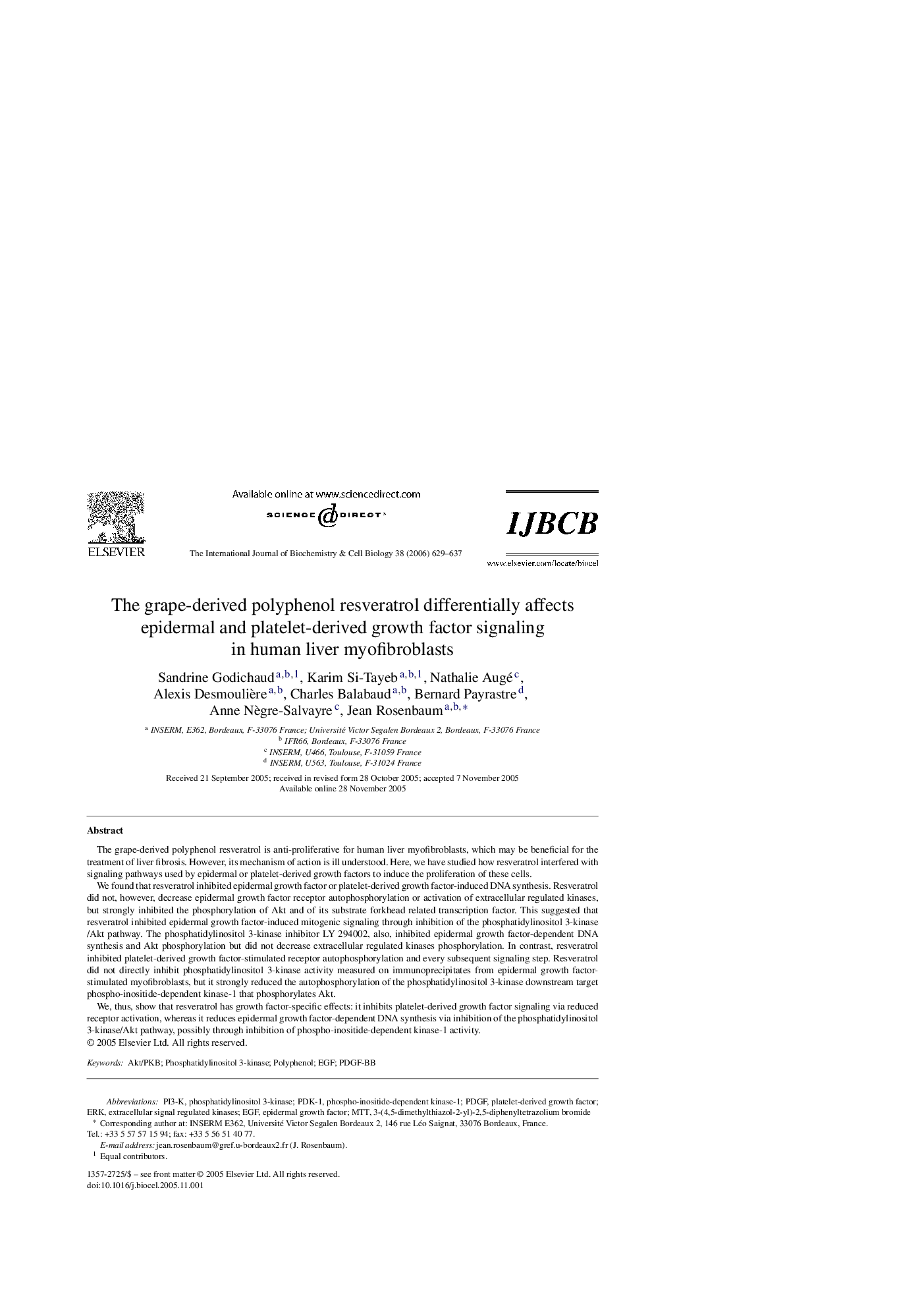| Article ID | Journal | Published Year | Pages | File Type |
|---|---|---|---|---|
| 1985219 | The International Journal of Biochemistry & Cell Biology | 2006 | 9 Pages |
The grape-derived polyphenol resveratrol is anti-proliferative for human liver myofibroblasts, which may be beneficial for the treatment of liver fibrosis. However, its mechanism of action is ill understood. Here, we have studied how resveratrol interfered with signaling pathways used by epidermal or platelet-derived growth factors to induce the proliferation of these cells.We found that resveratrol inhibited epidermal growth factor or platelet-derived growth factor-induced DNA synthesis. Resveratrol did not, however, decrease epidermal growth factor receptor autophosphorylation or activation of extracellular regulated kinases, but strongly inhibited the phosphorylation of Akt and of its substrate forkhead related transcription factor. This suggested that resveratrol inhibited epidermal growth factor-induced mitogenic signaling through inhibition of the phosphatidylinositol 3-kinase /Akt pathway. The phosphatidylinositol 3-kinase inhibitor LY 294002, also, inhibited epidermal growth factor-dependent DNA synthesis and Akt phosphorylation but did not decrease extracellular regulated kinases phosphorylation. In contrast, resveratrol inhibited platelet-derived growth factor-stimulated receptor autophosphorylation and every subsequent signaling step. Resveratrol did not directly inhibit phosphatidylinositol 3-kinase activity measured on immunoprecipitates from epidermal growth factor-stimulated myofibroblasts, but it strongly reduced the autophosphorylation of the phosphatidylinositol 3-kinase downstream target phospho-inositide-dependent kinase-1 that phosphorylates Akt.We, thus, show that resveratrol has growth factor-specific effects: it inhibits platelet-derived growth factor signaling via reduced receptor activation, whereas it reduces epidermal growth factor-dependent DNA synthesis via inhibition of the phosphatidylinositol 3-kinase/Akt pathway, possibly through inhibition of phospho-inositide-dependent kinase-1 activity.
